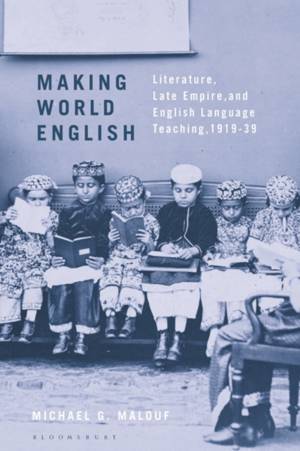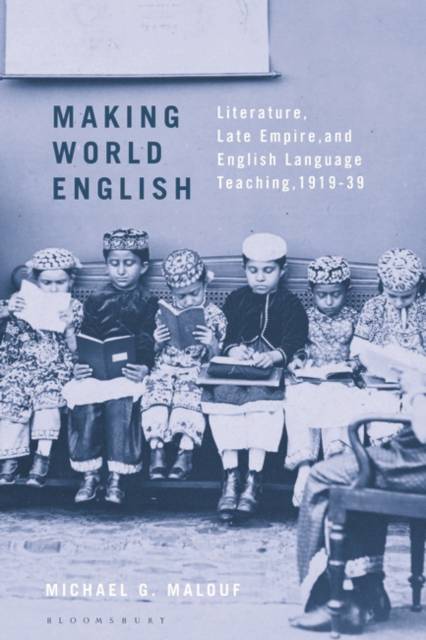
Je cadeautjes zeker op tijd in huis hebben voor de feestdagen? Kom langs in onze winkels en vind het perfecte geschenk!
- Afhalen na 1 uur in een winkel met voorraad
- Gratis thuislevering in België vanaf € 30
- Ruim aanbod met 7 miljoen producten
Je cadeautjes zeker op tijd in huis hebben voor de feestdagen? Kom langs in onze winkels en vind het perfecte geschenk!
- Afhalen na 1 uur in een winkel met voorraad
- Gratis thuislevering in België vanaf € 30
- Ruim aanbod met 7 miljoen producten
Zoeken
Making World English
Literature, Late Empire, and English Language Teaching, 1919-39
Michael G Malouf
Hardcover | Engels
€ 203,95
+ 407 punten
Uitvoering
Omschrijving
Uncovering the role of literature, late imperialism, and the rise of new models of internationalism as integral to the invention of Global English, this book focuses on three key figures from the "Vocabulary Control Movement" - C.K. Ogden, Harold Palmer, and Michael West - who competed for market share for their respective language teaching systems - Basic English, the Palmer Method, and the New Method - through battles over word lists and teaching methods in the 1920s and 30s.
Drawing on archives from the Carnegie Corporation and considering language teaching in eight global sites, this book analyzes how a series of conferences in New York and London resolved their conflicts and produced a consolidated, international standard form of English. As a postcolonial approach to the development of the field of English Language Teaching, it reveals how these language debates were proxy battles over an idealized global subject: an urban, secular, consumer moving seamlessly between the tribal and global, speaking both mother tongues and an international lingua franca, Global English. Featuring analysis of the primary texts of each of the three key figures in this book as well as close readings of their readers, which featured adaptations of well-known literary texts from writers like Poe, Dickens, Wordsworth, Milton and Wells, it recovers a neglected history of English as it was redefined as an international language through anti-colonial resistance in the peripheries and transatlantic power struggles in the metropole during the interwar period.Specificaties
Betrokkenen
- Auteur(s):
- Uitgeverij:
Inhoud
- Aantal bladzijden:
- 296
- Taal:
- Engels
Eigenschappen
- Productcode (EAN):
- 9781350243859
- Verschijningsdatum:
- 24/02/2022
- Uitvoering:
- Hardcover
- Formaat:
- Genaaid
- Afmetingen:
- 156 mm x 234 mm
- Gewicht:
- 594 g

Alleen bij Standaard Boekhandel
+ 407 punten op je klantenkaart van Standaard Boekhandel
Beoordelingen
We publiceren alleen reviews die voldoen aan de voorwaarden voor reviews. Bekijk onze voorwaarden voor reviews.









